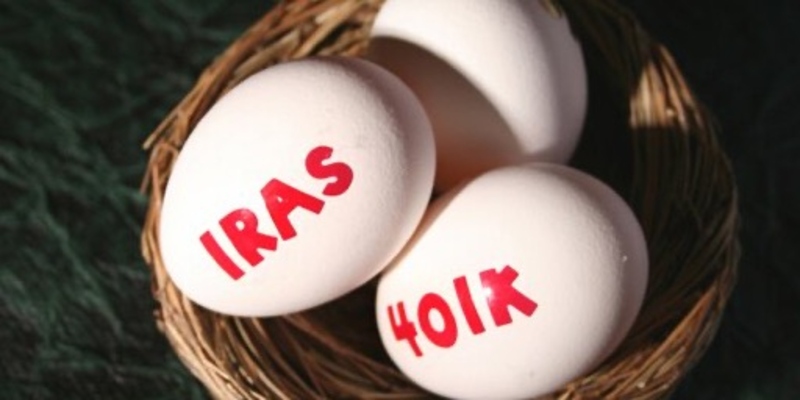Exploring the Lifetime Allowance: What You Need to Know
Jan 17, 2024 By Triston Martin
Pension benefits cannot exceed the lifetime allowance before penalties apply. This includes all your pensions except the State Pension and foreign pensions. The current standard limit stands at £1,073,100. However, there are circumstances in which this quantity may vary. Consult a financial advisor or the government's website to ascertain whether an individual is eligible for a unique allowance.
Bear in mind that this does not constitute a savings limit. Although you can save more, your pension funds will be assessed against this allowance at predetermined intervals. Before April 6, 2023, surpassing this threshold led to imposing a fixed percentage penalty on the surplus amount upon pension withdrawal or reaching 75. This fixed charge, nevertheless, has been eliminated as of April 6, 2023. Any amount above your allowance is taxable as income under the PAYE system. Seeking the guidance of a financial adviser is advisable if one is uncertain about the precise implications of this. They are capable of elucidating the tax implications of this allowance.
When Does the Lifetime Allowance Matter?

You decide how much pension to save. Your pension value is regularly checked to see if it exceeds the lifetime allowance. You may pay income tax during these checks if your pension exceeds the allowance.
These checks typically happen when:
- You start receiving a defined benefit pension.
- You withdraw an income or a lump sum from a defined contribution pension.
- You transfer a pension abroad before you turn 75.
- You reach 75 years of age with a pension in drawdown or untouched pensions.
- You pass away before 75 with untouched pensions.
- After 75, your retirement generally isn't checked against the allowance anymore.
Life Insurance Working Mechanism
You compare your remaining pension lifetime allowance to the value of your life insurance policy when you withdraw funds. Compare the two to calculate additional taxes. Add up all your projected pension values to see if you'll exceed your lifetime allowance. Remember that pension value is most important when evaluating. Consider how much your pension could grow if you're 55 and plan to withdraw at 60. Increases use up more of your lifetime allowance protection.
The valuation of a defined benefit pension plan is 20 times the expected annual pension plus any tax-free lump sum. Consider £330,000 for pension lifetime allowance purposes if the yearly pension was £15,000 and the lump sum was £30,000.
All your pension savings make up a defined contribution pension plan's value. Different regulations govern these funds. When pension funds are withdrawn, assessments are made. A tax-free lump sum withdrawal of 25% of a pension pot would subject the full pot, £100,000, to assessment. When you withdraw a lump sum, only that amount counts. Take £10,000 from a £100,000 pot, and only £10,000 will be tested. We will evaluate the remaining £90,000 later. If you draw down your pension, it will be reassessed at 75. Your lifetime allowance will be reduced if its value rises (excluding any initial tax-free lump sum).
Changes in Pension Benefits and Lifetime Allowance
You had to pay tax on pension benefits over the lifetime allowance until April 5, 2023. This tax is called a lifetime allowance. You had to pay income tax on extra earnings. Exceeding this allowance threshold had serious financial consequences. New rules take effect April 6, 2023. No lifetime allowance protection charge is due yet. If you earn more than the lifetime allowance, you will pay your standard income tax rate instead of the steep 55% rate. This is useful in many situations:
- Major Health Issues: A lump sum is when your pension provider pays you your entire pension pot because you're terminally ill and your prognosis is less than a year.
- A Permanent Fund: If you receive more than the lifetime allowance but are under 75, you may receive an excess lump sum.
- Upon Death Benefit: A lump sum death benefit is paid to the fund holder's defined contribution pension upon death.
Lifetime Allowance Charges

One-Time Overage Payment
The lifetime allowance charge was added to pensions over a certain threshold before April 5, 2023. We must simplify first. Suppose you wanted to withdraw the extra pension money all at once. The tax was withheld at 55% of the excess. What caused this? HMRC would receive 55% of your pension from your provider. The remaining 45% was in your hands.
This method might seem straightforward, but it significantly reduced the amount you received. For example, if you were to take out an extra £10,000, you'd only receive £4,500, with the rest going to taxes.
Opting for Income from Excess
The other option was to take the extra amount as income. This could be in different forms: flexible income (like pension drawdown), guaranteed income (annuity), or a scheme pension. Here's the twist: initially, 25% of this excess was taxed. However, this wasn't the end of it. Any income you received was also subject to your regular income tax.
For those in defined benefit pension schemes, the scheme usually pays the 25% tax on your behalf. They would then adjust your regular pension payments to compensate for this tax. In contrast, the scheme administrator pays the 25% directly to HMRC from your pot for defined contribution pension schemes, leaving you with 75% of the excess.
Let's consider an example for clarity. Imagine you were supposed to get £1,000 a year as extra income. The 25% charge would reduce this to £750. If you were in the higher tax bracket (40%), you'd only keep £450 of this after income tax. So, whether you took a lump sum or income, your extra pension amount was reduced by around 55%.
Securing Your Lifetime Allowance
For those with substantial pension savings, safeguarding your lifetime allowance was crucial. If you expected your pension to exceed the lifetime allowance, applying for protection was wise. This protection raised your lifetime allowance, helping you dodge hefty taxes.
You needed an HMRC online account to find out if you already had protection. If you didn't have one, setting it up was necessary. This process was a prudent step to ensure your retirement savings didn't get unnecessarily taxed, especially if you had diligently saved for your retirement years.
-
 Know-how Sep 26, 2024
Know-how Sep 26, 2024Understanding Mortgage Recasting: A Comprehensive Guide
Explore mortgage recasting, a method to lower monthly payments while keeping your interest rate and loan term unchanged, ideal for those with lump sum access.
-
 Investment Mar 21, 2024
Investment Mar 21, 2024Understanding 2 Main Retirement Savings Options
Learn the distinctions between IRA and 401(k) retirement accounts in this comprehensive guide for an understanding of better financial insight.
-
 Know-how Sep 17, 2024
Know-how Sep 17, 2024Mastering TradingView Strategy Tester: A Comprehensive Guide
Enhance your trading performance with effective optimization techniques and advanced tools like the Strategy Tester for informed decision-making.
-
 Know-how Jan 17, 2024
Know-how Jan 17, 2024Exploring the Lifetime Allowance: What You Need to Know
Learn about the lifetime allowance and how it affects your retirement savings. Discover the current limit and how to avoid exceeding it to secure your finances.
